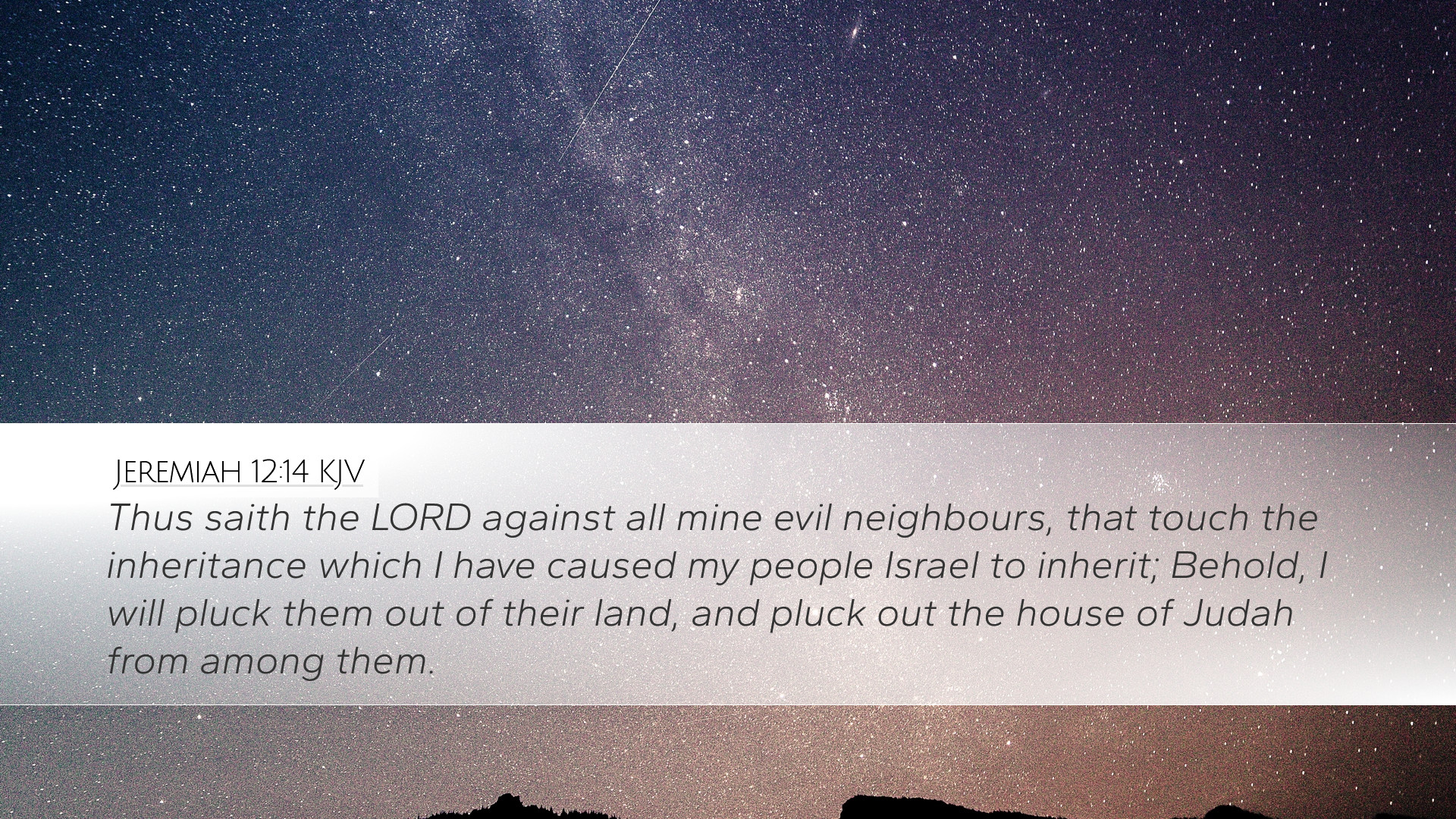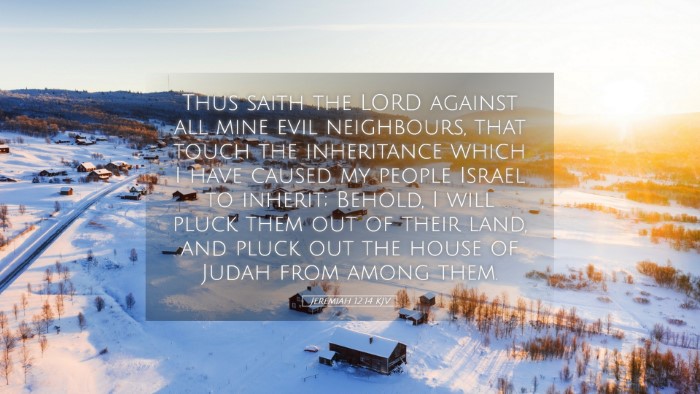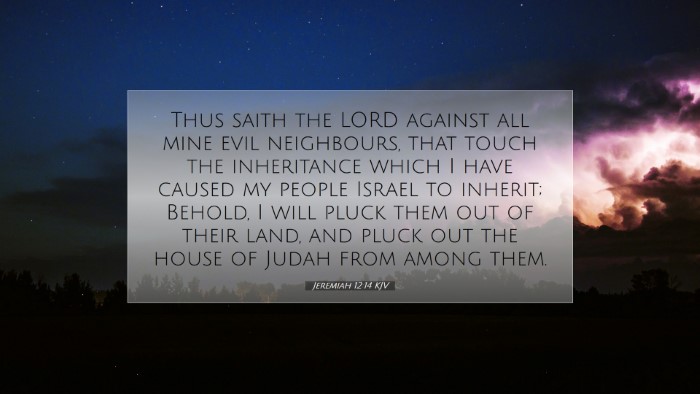Commentary on Jeremiah 12:14
The verse Jeremiah 12:14 states:
"Thus saith the Lord against all mine evil neighbors, that touch the inheritance which I have caused my people Israel to inherit; Behold, I will pluck them out of their land, and will pluck out the house of Judah from among them."
This profound statement by God through the prophet Jeremiah addresses significant themes of divine judgment, the sanctity of God’s chosen people, and the preservation of His promises. Below is a synthesis of insights gathered from notable public domain commentaries.
Overview of Context
Jeremiah prophesied during a tumultuous period in Israel’s history, marked by impending calamity and national turmoil. His ministry was primarily focused on urging the people toward repentance and faithfulness to God amidst widespread disobedience.
Divine Judgment on Neighbors
In this verse, God specifically addresses the evil neighbors. This term refers to the surrounding nations that posed a threat to Judah and engaged in actions contrary to God’s will for His people.
- Matthew Henry emphasizes that these "evil neighbors" represent not only the literal countries that threatened Israel but also any influence that leads Israel astray from God’s commandments.
- Albert Barnes notes that the judgment against these nations illustrates God’s active role in defending His people and protecting their inheritance.
- Adam Clarke highlights that God's judgment serves a dual purpose: executing justice against those who would harm Israel and warning Israel of the consequences of their own sins.
The Inheritance of Israel
God mentions the inheritance of His people, which is a recurring theme throughout Scripture, symbolizing the granted land and spiritual promises. This inheritance is safeguarded by God's covenant with Israel.
- Matthew Henry points out that this inheritance signifies both the physical land of Israel and the spiritual blessings associated with a relationship with God.
- Albert Barnes elaborates that God’s concern for His “inheritance” signifies His ongoing commitment to His covenant and the sanctity of those He has chosen.
- Adam Clarke adds that the act of plucking out signifies a dramatic removal of those who attempt to usurp or desecrate what belongs to God’s people.
Implications of Divine Intervention
The phrase "I will pluck them out of their land" indicates God’s sovereignty and power to enact judgment.
- Matthew Henry asserts that this plucking is a promise of deliverance for Judah, showing that God is aware of their plight and will act on their behalf.
- Albert Barnes highlights that God’s intervention is essential for restoring His people, noting the urgency of divine action in dire circumstances.
- Adam Clarke reminds readers that the metaphor of plucking suggests a sudden and decisive action, underscoring God’s authority over nations and their fates.
Challenges of Interpretation
Understanding this verse also requires consideration of several interpretative challenges:
- Historical Context: The historical backdrop of the Jewish exiles and surrounding nations enriches our comprehension of the text.
- Theological Implications: The verse raises questions about divine justice, mercy, and the role of nations in God’s plan.
- Contemporary Application: Pastors and scholars must consider how these themes continue to resonate today within the church and the broader world.
Conclusion
Jeremiah 12:14 offers rich theological insights into the nature of God’s justice and His unyielding protection of His people. As presented in the commentaries of Matthew Henry, Albert Barnes, and Adam Clarke, it serves both as a warning to those who oppose God’s plans and a reassurance to His faithful. In studying this verse, it is crucial to recognize the multifaceted nature of God’s dealings with humanity and the hope embedded within His promises.


